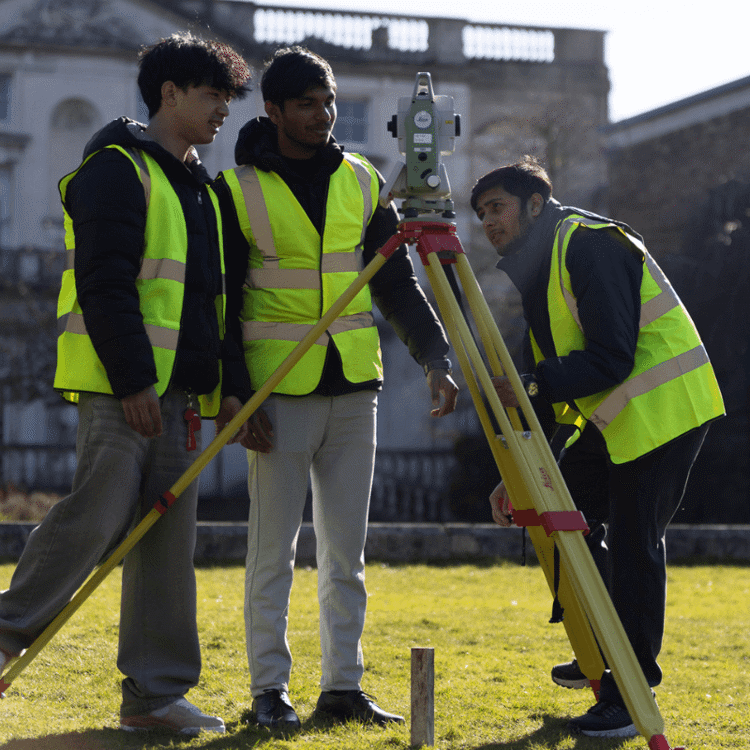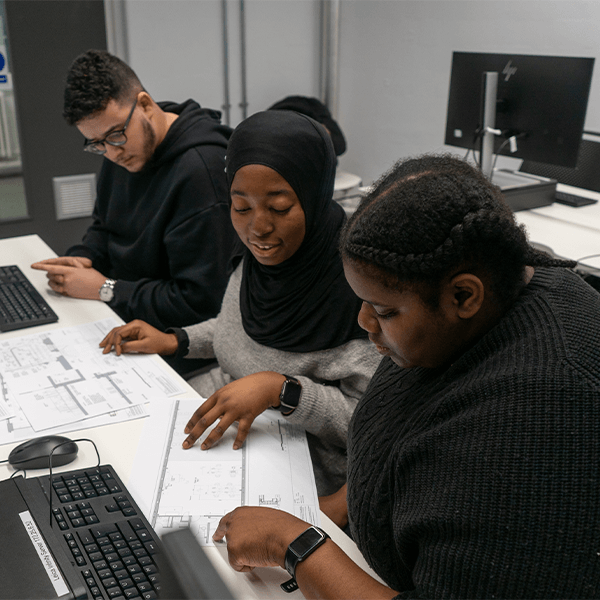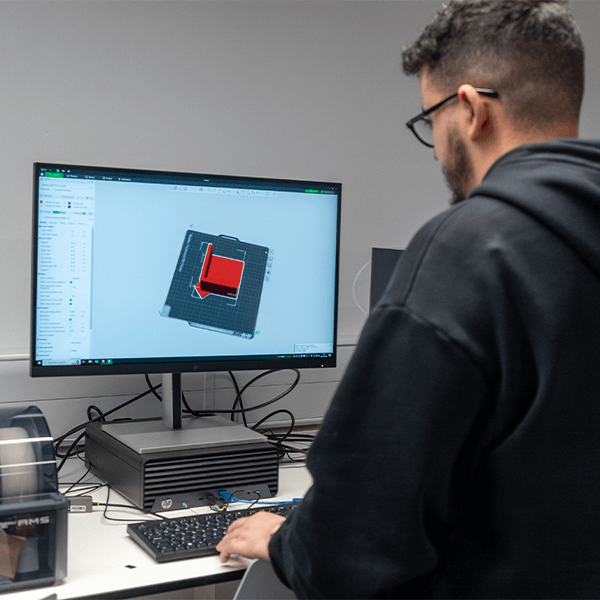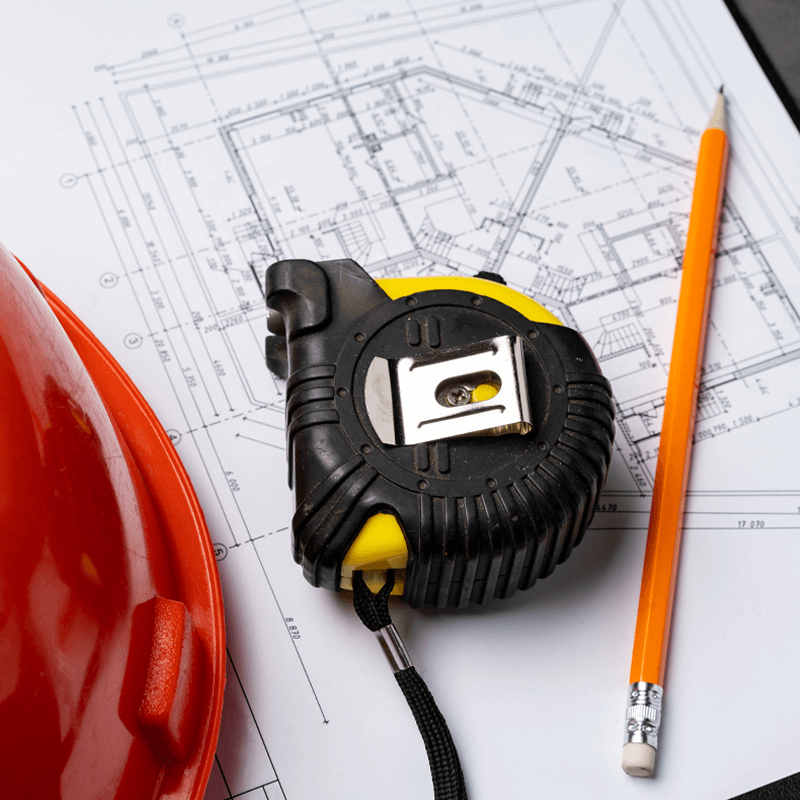/ Apprenticeships /
Start date:
September 2025
You'll need:
No formal qualifications required. See entry requirements section.
Duration:
5 years

A Civil Engineering apprenticeship offers a unique opportunity to build a rewarding career while earning a salary and gaining practical, on-the-job experience. You will work alongside experienced engineers, contributing to real-world projects that shape the landscape around us - from bridges and roads to water systems and buildings.
Did you know
The programme is part of a broader suite of interconnected courses, incorporating shared modules that bring together learners from sustainable engineering and technology disciplines.

Skills
The aim is to equip civil engineering students with the skills required to effectively manage and deliver complex infrastructure projects, emphasising quality management, adherence to regulatory standards, and the integration of sustainable practices.
The programme focuses on developing competencies in structural analysis, geotechnical engineering, transport and water infrastructure design, and interdisciplinary collaboration. Students will cultivate essential transferable skills, including analytical problem-solving, creativity, digital proficiency, teamwork, communication, ethical decision-making, and continuous self-improvement. These skills will enable them to make a significant and immediate impact in the field of civil engineering, contributing to the design and implementation of resilient, sustainable, and efficient infrastructure solutions.
Learning
Apprentices will employ current and emerging technologies to produce innovative solutions for preparing, producing and communicating outputs. Over the course of the programme, the process of learning will involve the use of industrial projects, work-based activities and case studies to develop analytical and problem-solving skills.
The programme integrates structural engineering, environmental engineering (within and outside buildings), geotechnical engineering and transportation engineering. Apprentices will collaborate on a series of interdisciplinary design project modules, mirroring the teamwork and professional practices of the industry.
The workplace serves as the primary learning environment, allowing apprentices to apply theoretical knowledge to real-world scenarios. Through hands-on tasks and projects, apprentices will gain practical experience, develop critical competencies, and adapt to the professional standards of their roles. This on-the-job training is supported by mentors and supervisors who provide guidance and feedback.
Apprentices will be assigned a Personal Tutor (PT) for the duration of the programme, serving as their primary academic point of contact. The PT will provide tailored guidance on academic matters, support aligned with work-based learning needs, and direct to appropriate support services for mitigating circumstances, counselling, health and wellbeing concerns, and career advancement. This proactive approach ensures challenges are addressed promptly, enabling apprentices to effectively balance their studies with workplace commitments alongside regular progress reviews to set personal and professional goals.
To complement their workplace learning, apprentices will engage in 6 hours of off-the-job training each week. This structured academic study is carefully crafted to deepen theoretical understanding, enriching the ability to apply knowledge effectively within the workplace and integrate new concepts.


Assessment
Students will be assessed using a combination of assessment strategies which will include:
- the submission of technical reports
- lab reports
- essays
- in-class open and closed book tests
- online assessments
- oral presentations
The programme includes both formative assessment, with respect to interim reviews and feedback / feedforward and summative assessment, which will be carried out in accordance with the university’s assessment policy.
Careers
There are many opportunities within the discipline of civil engineering, in many sectors of the construction and engineering industries, on an international scale there are opportunities in areas of:
- design
- consultancy
- structures
- railways
- coastal
- transport
- water
- infrastructure engineering

Applying
Apprenticeship applicants will typically have at least three A levels at Grades A* - C, including Mathematics and Physical Science or their equivalent or a Level 3 Apprenticeship as a Civil Engineering Technician.
- An interview with Apprentice, Employer, Programme Leader and Director / Head of Apprenticeship
- Skills scan, which will analyse experience
- CV and interview prior to commencing the apprenticeship including PL, Head of Apprenticeship & Employer
This apprenticeship is subject to validation.
If you are an employer and would like to offer apprenticeships at your organisation, please get in touch with us by emailing apprenticeships@roehampton.ac.uk.
We can provide you with all the information and guidance you need to set these up.
This apprenticeship is subject to validation.
Find out more
Get more detailed information on our apprenticeships.
